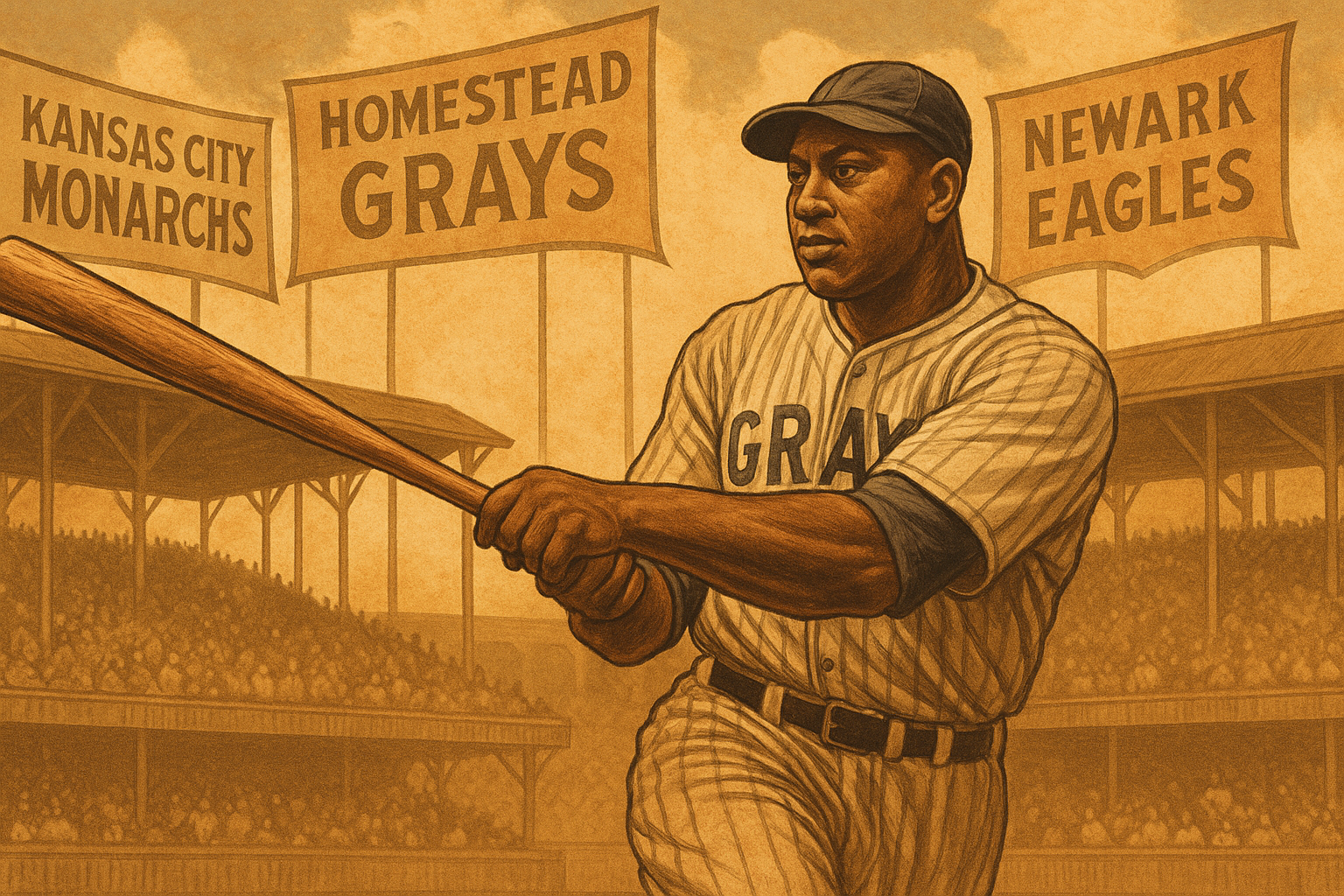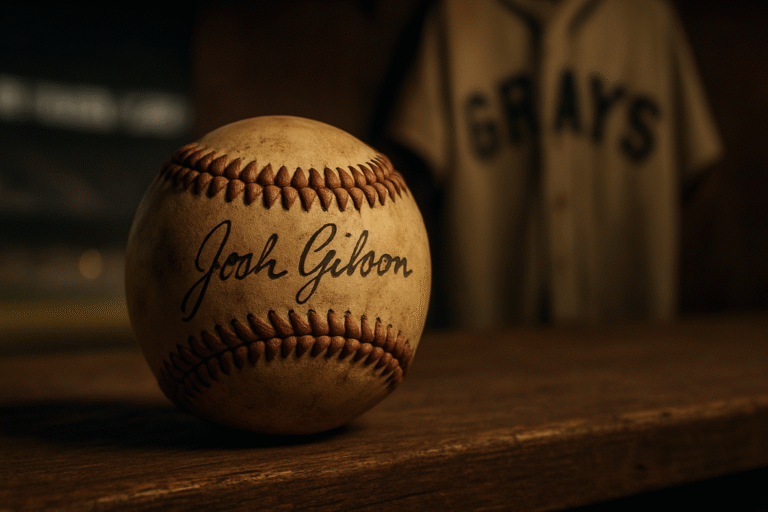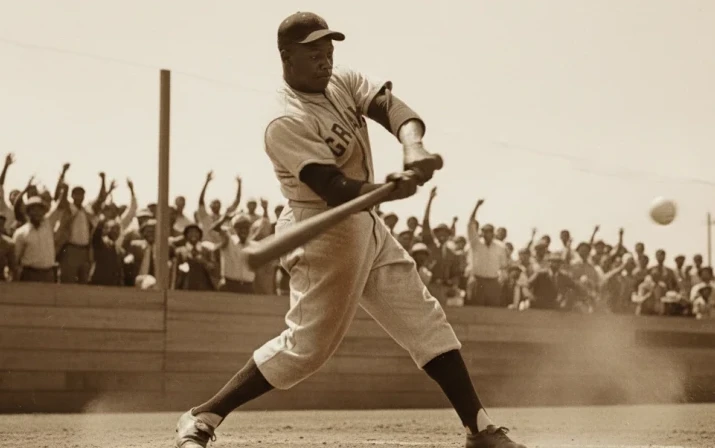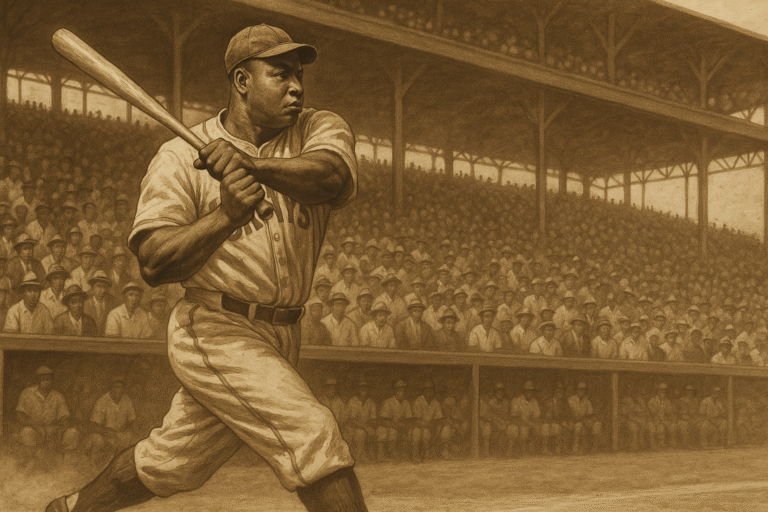
Key Takeaway: Josh Gibson’s greatness was never a secret; it was just ignored. The 2024 recognition by Major League Baseball didn’t elevate him; it simply confirmed what his peers always knew. The greatest hitter in history was playing in the Negro Leagues all along.
The Sound of a Different Game
Before Jackie Robinson broke the color barrier, before Major League Baseball claimed to represent the best in the world, there was another game being played. On dusty diamonds and city lots, under dim lights and roaring crowds, the Negro Leagues thrived. It was baseball stripped of politics and powered by pride.
At the heart of that world stood Josh Gibson, a man often called “the Black Babe Ruth.” For decades, his story was whispered by those who had seen him hit balls so far they seemed to vanish. His power was unmatched, his swing effortless, his numbers almost mythical. But his name didn’t appear in the record books until now.
A Legend in the Making
Josh Gibson was born in Buena Vista, Georgia, in 1911, and raised in Pittsburgh’s Hill District, one of the beating hearts of Black America in the 20th century. He didn’t come from wealth or privilege. What he had was a raw gift and a work ethic that turned that gift into greatness.
He joined the Homestead Grays as a teenager, quickly earning a reputation for his strength at the plate. Spectators didn’t need a scoreboard to know when Gibson connected; the sound of the bat was enough. It wasn’t just power, it was precision. Pitchers feared him. Fans adored him.
In an era when radar guns and launch angles didn’t exist, stories filled the gap. There were tales of Gibson hitting a ball out of Yankee Stadium during an exhibition game, a blast estimated at more than 500 feet. Even if the details blur between truth and legend, one thing never did: Josh Gibson could hit anything thrown at him.
The League of Giants
The Negro Leagues weren’t just an alternative; they were a movement. Founded in 1920 by Rube Foster, the Negro National League brought order and structure to a system that had been surviving on barnstorming and word of mouth.
Teams like the Homestead Grays, Kansas City Monarchs, and Newark Eagles became symbols of resilience and excellence. The Monarchs boasted Satchel Paige, whose pitching mystique was as legendary as Gibson’s swing. The Grays had Gibson and Buck Leonard, a first baseman so consistent that even Paige called them the “Black Ruth and Gehrig.”
The games were fast, fierce, and filled with flair. Players didn’t just perform; they entertained. Crowds filled stands in cities like Pittsburgh, Kansas City, and Chicago. Music played between innings. Vendors shouted. Kids mimicked the players in alleys. It wasn’t just baseball; it was community.
Barriers and What Could Have Been
The tragedy of Josh Gibson’s story is not how it ended, but what was denied. He never had the chance to play in the Major Leagues. The doors were closed not because of talent, but because of the color of his skin.
By the time integration began in 1947, Gibson had already passed away. He died in January of that year, just months before Robinson’s debut with the Brooklyn Dodgers. He was only 35. Doctors said it was a brain hemorrhage. Friends said it was heartbreaking.
Many believed that had he lived long enough, Gibson would have been the one to integrate the game. The talent was undeniable. His numbers were absurd: in some seasons, he batted over .400 and routinely slugged .700 or higher. Even accounting for incomplete record-keeping, he was in a class of his own.
Recognition, Long Overdue
For decades, those numbers were buried in archives, scattered across newspaper clippings, and remembered through word of mouth. Historians and baseball lovers fought to document them, but official recognition was slow.
Then, in 2024, Major League Baseball did something historic. The league announced that the statistics from the Negro Leagues (1920–1948) would finally be integrated into MLB’s official record books.
When that happened, Josh Gibson became Major League Baseball’s all-time leader in career batting average (.372), surpassing Ty Cobb. He also claimed the highest single-season average ever recorded (.466).
The baseball world finally caught up with what players and fans had known all along: Josh Gibson wasn’t just one of the greats. He was the great.
The Men Beside the Myth
No story about Gibson stands alone. His era was marked by brilliance that forced baseball and America to confront their blind spots.
There was Satchel Paige, who finally got his shot at the Majors and dazzled even at 42. Oscar Charleston, the five-tool star many called the best all-around player in history. Cool Papa Bell, said to be so fast he could turn off the light and be in bed before the room went dark. Buck Leonard, Gibson’s calm, steady counterpart in the Grays’ lineup.
Together, they made baseball better, not just for Black players, but for everyone who came after.
Beyond the Game
Josh Gibson’s story is no longer confined to folklore because his name now appears where it always belonged, among the greatest who ever played. But his real legacy goes beyond numbers. It’s in every kid who picks up a bat believing talent matters more than circumstance.
The Negro Leagues showed that greatness thrives even when recognition doesn’t. They built their own fields, their own leagues, their own legends. And they forced the baseball establishment to reckon with the truth, that excellence can’t be segregated forever.
Josh Gibson never played in a Major League ballpark under contract, but his impact reached far beyond any one field. He changed how the game is remembered. He forced history to take a second look. And finally, it did.
FAQ: Josh Gibson & the Negro Leagues
Who was Josh Gibson?
Which teams did Josh Gibson play for?
Why didn’t Josh Gibson play in Major League Baseball?
Did MLB recognize Negro Leagues statistics?
Are the Negro Leagues stats complete and perfect?
What made Gibson’s hitting so special?
Who were Gibson’s notable contemporaries?
How did the Homestead Grays and Pittsburgh Crawfords differ?
What was life like around Negro Leagues baseball?
Where can I learn more about Josh Gibson today?
The Final Word
Baseball has always been about more than stats. It’s about memory and the way stories outlive silence.
Josh Gibson never played in a Major League ballpark under contract, but his impact reached far beyond any one field. He changed how the game is remembered. He forced history to take a second look. And finally, it did.



